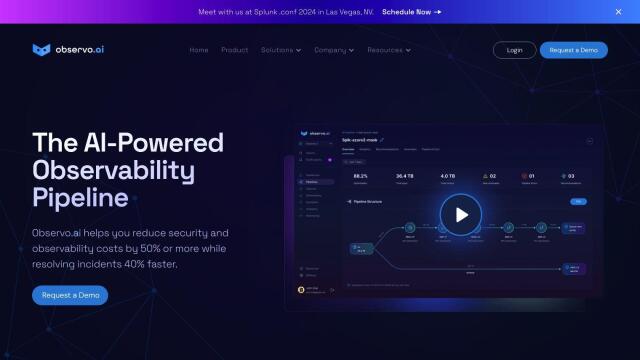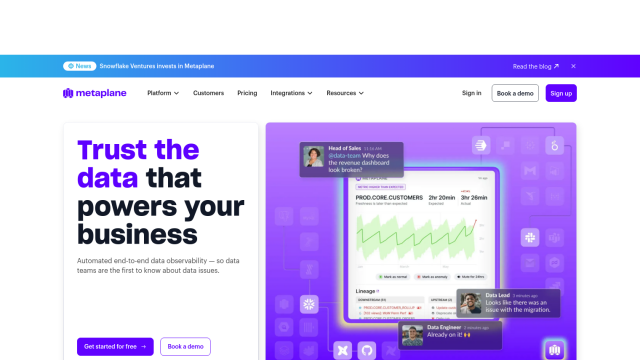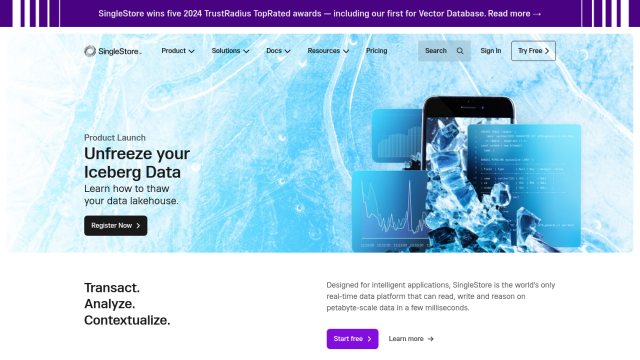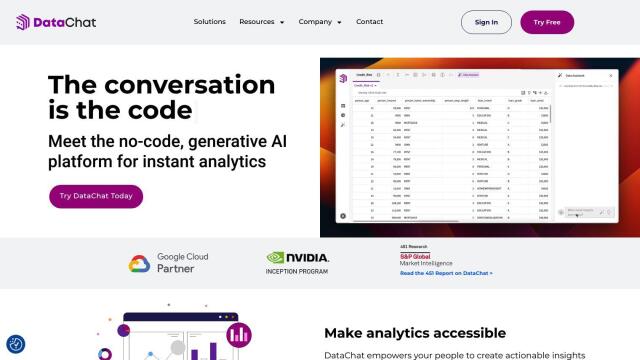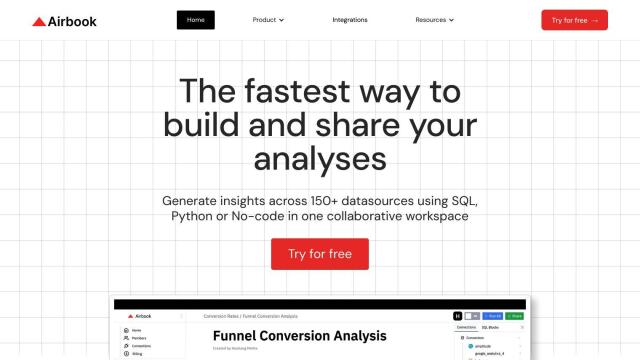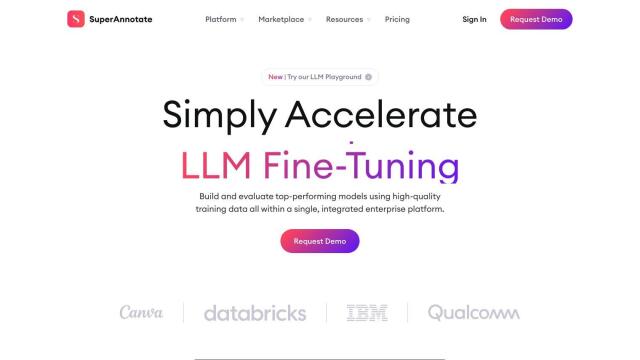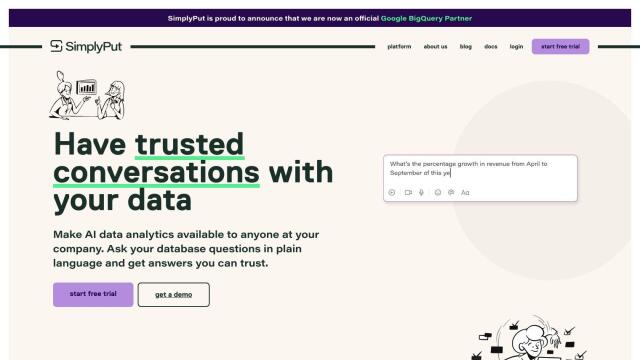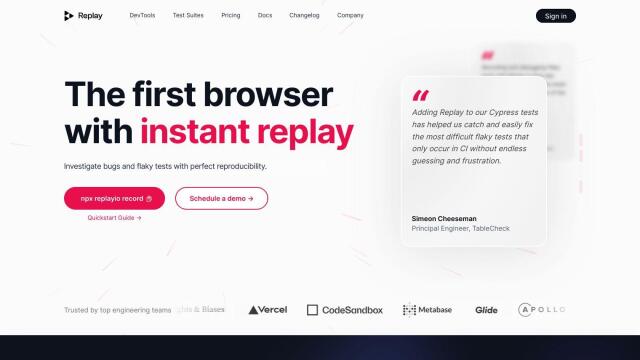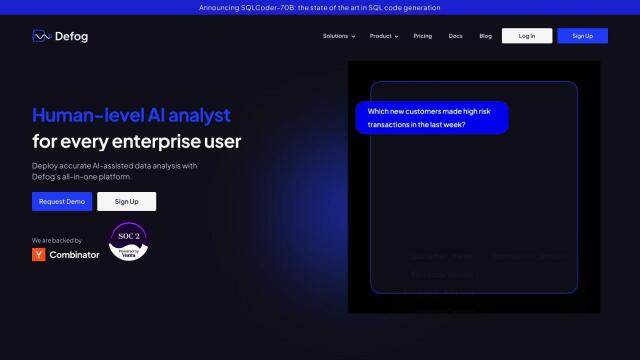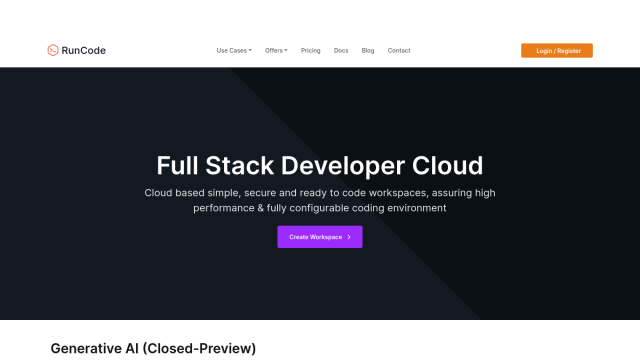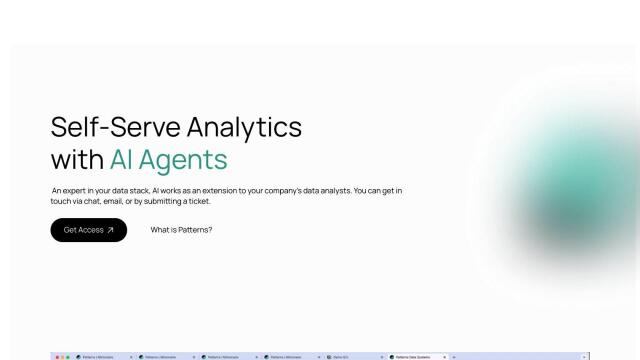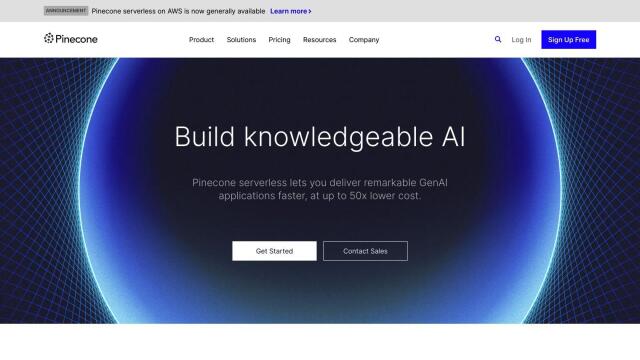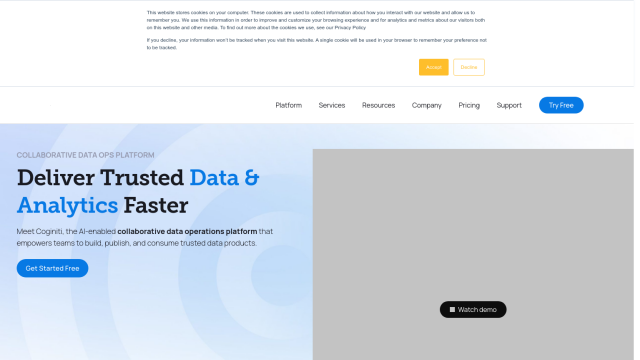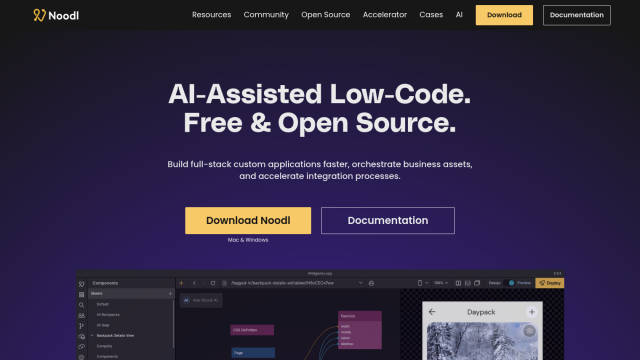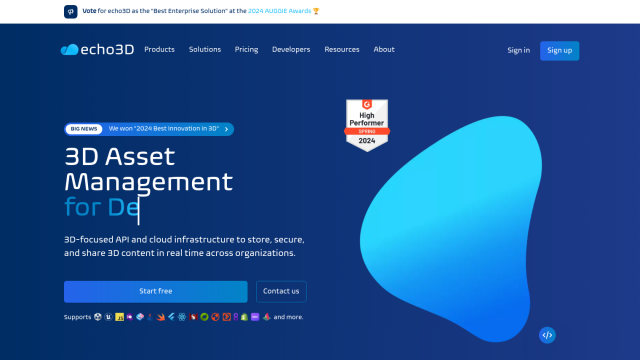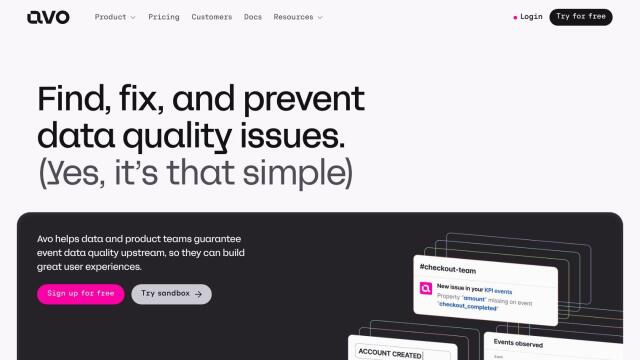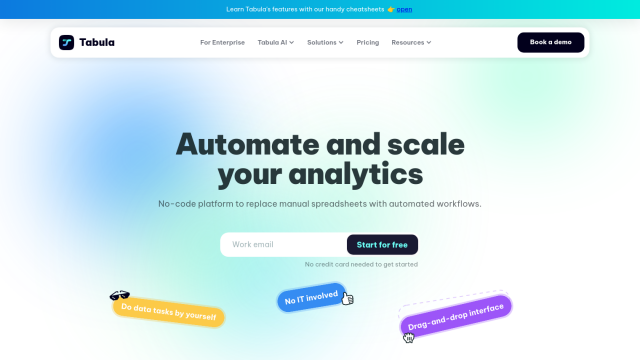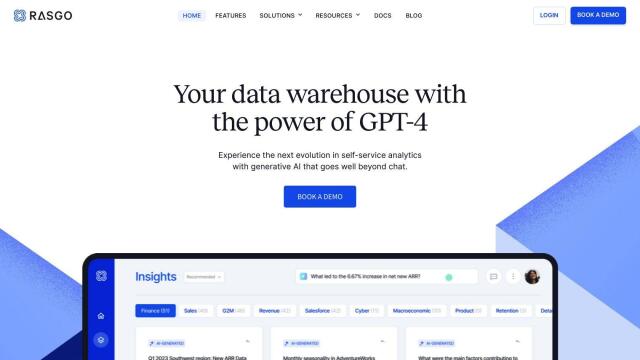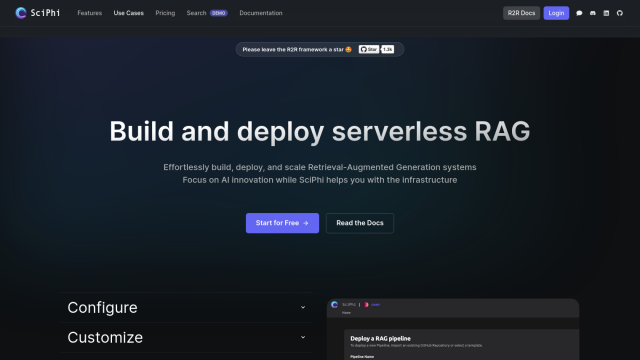Question: Can you recommend a flexible and scalable tool for debugging and explaining spatial computing systems?

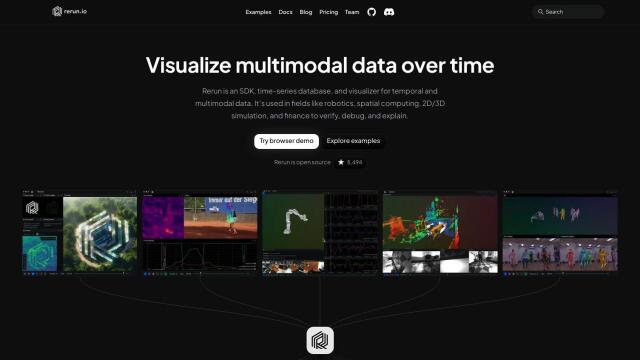
Rerun
If you need a flexible, scalable tool for debugging and explaining spatial computing systems, Rerun is a good option. It provides a software development kit (SDK) that lets you log and visualize computer vision and robotics data as it happens. Rerun comes with a time-series database and visualization engine that lets you validate, debug and explain the inner workings and data of a system with a minimal amount of code. It can handle multimodal data like tensors, point clouds and text, and can be extended with code or UI, making it a good fit for robotics, spatial computing and other domains.

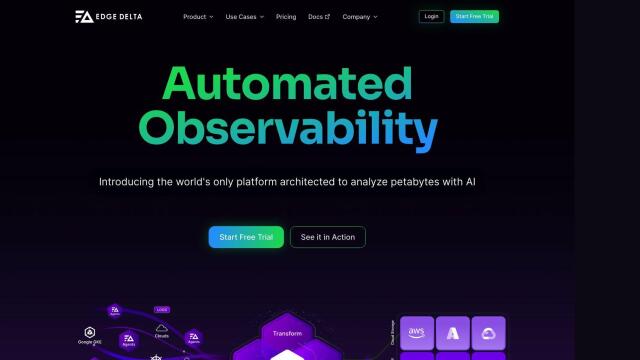
Edge Delta
Another option is Edge Delta, an automated observability platform. Edge Delta monitors services, spots problems and helps you find the root cause with AI-assisted analysis of vast amounts of data. It has flexible pipelines for data ingestion and offers real-time insights, automated anomaly detection and assisted troubleshooting. It's geared for complex systems, so it's good for use cases like log management and Kubernetes metrics.

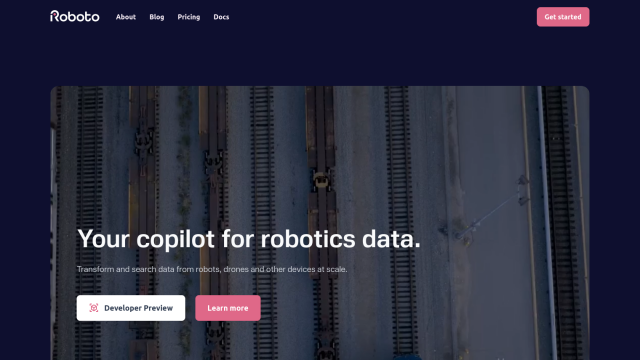
Roboto
If you need to process and search log data from robots and other sources, check out Roboto. This data engine lets you filter, downsample and process raw data with actions, create collections and reports, and export data to other systems. It can handle AI-assisted search and multimodal queries, so you can inspect patterns and edge cases. It's designed for collaboration and offers a range of pricing options for different needs.

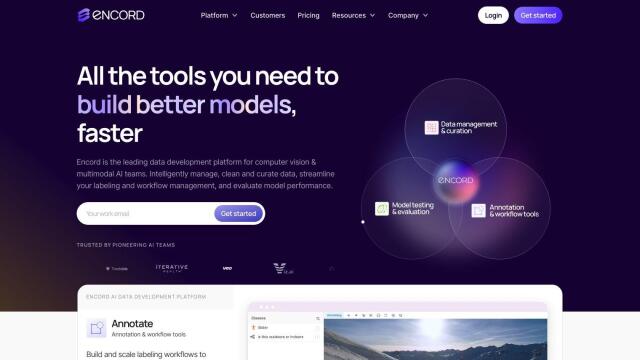
Encord
If you're focused on building predictive and generative computer vision applications, Encord is a full-stack data development platform you might find useful. It includes tools for data ingestion, cleaning, curation, automated labeling and model performance evaluation. With tools like Annotate for one-click automated labels, Active for monitoring and debugging model performance, and Index for data management and exploration, Encord helps you work efficiently and get high-quality training data.

